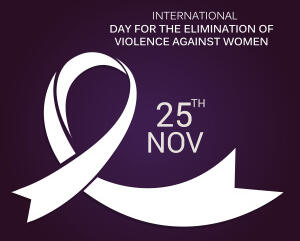Almost every woman in Israel who endures sexual harassment (95.4%) and 79.2% of those who are sexually assaulted don't file a complaint to police, shows according to a new study by the Central Bureau of Statistics (CBS).
The CBS found that among the main reasons for the lack of reporting were the shame the victim feels and a sense that she did not want to trouble the police with a "minor incident."
An October protest in Rabin Square against violence against women
(Video: Meshi Ben Ami)
The report, which comes ahead of the International Day for the Elimination of Violence against Women on November 25, paints a grim picture of the number of women who are victims of sexual harassment and assault, but also the fact that most decide not to file a complaint.
In 2018, according to the report, 336,000 women aged 20 and up (11.8% of all Israeli women) were victims of various offenses.
During that year, the most common offenses among women were:
1. Sexual harassment (4.9%)
2. Online offenses such as harassment (3.4%)
3. Theft (3.3%)
4. Violence or threat of violence (2.4%)
5. Sexual assault (0.5%)
Furthermore, the report found that 4.9% of women and 0.5% of men were victims of sexual harassment. The report also said that 0.5% of women were victims of sexual assault – one out of every 200 women.
2 View gallery


International Day for the Elimination of Violence against Women
(Photo: shutterstuck)
Most victims of sexual harassment are women aged 20-34 (9.6% of women in that age category), three times higher than victims among women aged 35 and up (2.7%).
The bureau found that most harassment doesn't occur in the workplace.
About 103,000 women, 73.6% of those who have been sexually harassed, reported incidents outside their workplace, and only 26.4% of the women who reported harassment said it took place in their workplace.
Among women harassed at work, about 13,200 women (35.8%) reported being harassed by a superior and 64.2% reported being harassed by a contemporary.
Further data shows that about 68,000 women (2.4% of women aged 20 and up) have experienced violence or the threat of violence. Of women aged 20 and over who have experienced violence or the threat of violence, 66.1% reported the attacker was a family member.
A separate poll was conducted by the CBS examined the personal sense of security that men and women experience when they walk alone at night in their area of residence. The answers in the poll ranged from "very high" to "very low."
The data showed that in general, women felt much less safe than men (77.7% reported feeling safe or very safe as opposed to 91.2% of men).
The report found that women feel less safe than men across all age groups.
President Reuven Rivlin received the report on Wednesday at his Jerusalem residence by the Association of Rape Crisis Centers in Israel Executive Director, Orit Sulitzieano.
“Despite the political agenda and the meetings happening here today, I see this meeting with you as exceptionally important,” said the president.
“The last few years have been a historical turning point in how we deal with and understand the issue of sexual assault. The #MeToo revolution, media attention, and particularly the courage with which those who have suffered sexual abuse have shared their stories has raised the consciousness across the whole of society. Change has already started – but the work is far from over.”




